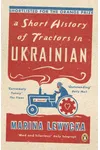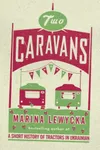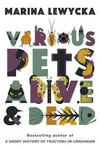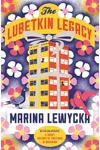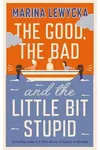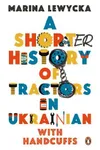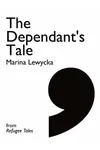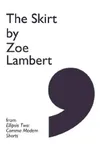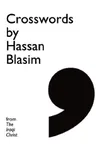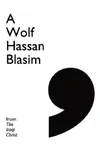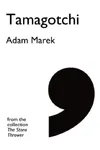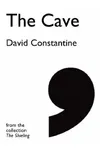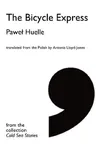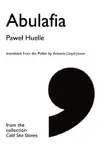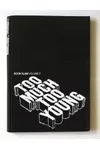Picture a Ukrainian-British storyteller who turned family quirks into literary gold—meet Marina Lewycka! Born in a refugee camp in 1946, she didn’t publish her first novel until she was 59, but when A Short History of Tractors in Ukrainian hit shelves, it became a global sensation. With her knack for blending humor with heartfelt tales of immigration and identity, Lewycka has carved a unique space in contemporary fiction.
Her stories, often drawn from her Ukrainian roots and life in England, resonate with readers who love a good laugh alongside poignant reflections on family and culture. Let’s dive into the life and legacy of this late-blooming literary star.
The Making of Marina Lewycka
Marina Lewycka was born in a British-run refugee camp in Kiel, Germany, to Ukrainian parents displaced by World War II. At just one year old, her family moved to England, settling in places like Sussex and later Norton, a mining village near Doncaster. Her early years were shaped by her mother’s storytelling and the posh English accent she picked up from elderly hosts. A bright student, Lewycka studied English and Philosophy at Keele University, followed by a BPhil in English Literature at the University of York. She began a PhD at King’s College London but left to teach media studies at Sheffield Hallam University, where she worked until retiring in 2012.
Writing was always a passion—Lewycka penned her first poem about rabbits at age four! But it wasn’t until her late fifties, during an MA in Creative Writing, that she crafted her breakout novel, proving it’s never too late to chase a dream.
Marina Lewycka’s Unforgettable Stories
Lewycka’s debut, A Short History of Tractors in Ukrainian (2005), is a comedic gem that sold over a million copies worldwide. It follows two feuding sisters uniting to save their elderly Ukrainian father from a gold-digging Ukrainian divorcée. Inspired by her own family, the novel blends humor with themes of exile and aging, earning the Bollinger Everyman Wodehouse Prize and a spot on the Man Booker longlist.
Her second novel, Two Caravans (2007), tackles darker themes like economic migration and exploitation, following a group of immigrant strawberry pickers in Kent. With multiple perspectives—including a dog’s!—it showcases Lewycka’s playful yet incisive style. We Are All Made of Glue (2009) explores London’s property boom and Middle Eastern conflict, while The Lubetkin Legacy (2016) nods to modernist architect Berthold Lubetkin, weaving humor with social commentary. Her 2020 novel, The Good, the Bad and the Little Bit Stupid, takes on Brexit and organ trafficking with her signature wit.
Lewycka’s style is a masterclass in balancing lighthearted farce with serious issues. Her Ukrainian heritage infuses her work with a clunky, comedic charm, often reflecting the immigrant experience and family ties. Beyond novels, she’s written short stories and practical guides for caregivers, published by Age Concern.
Why Marina Lewycka Matters
Marina Lewycka’s work shines a light on the immigrant experience, blending humor with the struggles of displacement and cultural identity. Her ability to find comedy in the mundane—whether it’s a tractor-obsessed dad or a strawberry picker’s dreams—makes her stories universally relatable. Her late start in publishing inspires aspiring writers, showing that talent can bloom at any age.
Her novels, translated into 35 languages, have touched readers worldwide, offering a fresh perspective on modern Britain through an Eastern European lens. Lewycka’s legacy is one of resilience, wit, and storytelling that bridges cultures.
- Born: October 12, 1946, in Kiel, Germany
- Key Works: A Short History of Tractors in Ukrainian, Two Caravans, The Lubetkin Legacy
- Awards: Bollinger Everyman Wodehouse Prize (2005), Saga Award for Wit (2005)
Snag A Short History of Tractors in Ukrainian and dive into Marina Lewycka’s hilarious, heartwarming world of family, culture, and comedy!
